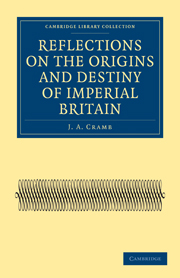LECTURE V - WHAT IS WAR?
Published online by Cambridge University Press: 07 September 2011
Summary
Assuming then that the imperialistic is the supreme form in the political development of the national as of the civic State, and that to the empires of the world belongs the government of the world in the future, and that in Britain a mode of imperialism which may be described as democratic displays itself,—a mode which in human history is rarely encountered, and never save at crises and fraught with consequences memorable to all time—the problem meets us, will this form of government make for peace or for war, considering peace and war not as mutual contradictories but as alternatives in the life of a State? Even a partial solution of this problem requires a consideration of the question “What is War?”
THE PLACE OF WAR IN WORLD-HISTORY
The question “What is War?” has been variously answered, according as the aim of the writer is to illustrate its methods historically, or from the operations of the wars of the past to deduce precepts for the tactics or the strategy of the present, or as in the writings of Aristotle and Grotius, of Montesquieu and Bluntschli, to assign the limits of its fury, or fix the basis of its ethics, its distinction as just or unjust. But another aspect of the question concerns us here—What is War in itself and by itself? And what is its place in the life-history of a State considered as an entity, an organic unity, distinct from the unities which compose it?
- Type
- Chapter
- Information
- Reflections on the Origins and Destiny of Imperial Britain , pp. 162 - 214Publisher: Cambridge University PressPrint publication year: 2010First published in: 1900

